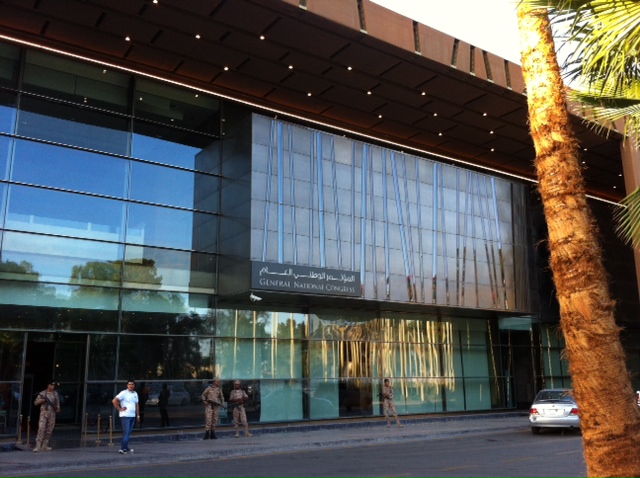
Tripoli, 9 October:
At the end of an often-rancorous day’s debating, the National Congress yesterday moved towards consensus on how to select Libya’s next Prime Minister.
An early motion from Benghazi independent Suleiman Zubi proposing that the next prime minister be chosen from inside the Congress was met with heated exchanges that led, at one point, to Misrata’s Union for Homeland chief Abdulrahman Sewehli walking out of the chamber in protest.
The motion was subsequently struck down in comprehensive fashion, with just 18 members voting in favour and 123 against.
Where agreement was reached, however, was on the need for a swift resolution on how to choose the next prime minister and the need, if possible, for a consensus candidate.
What emerged was a proposal that should see three names agreed upon as candidates for the top job as early as Wednesday. Each of the five major blocs in Congress will today nominate two representatives to come together with a handful of non-aligned members to decide who those three names should be.
The blocs in question are the National Forces Alliance and the Justice & Construction party together with three independent coalitions, the National Agreement group, said to have 26 members, the Workers group, said to have 20, and the National Independent group, said to have 35. The NFA and the J&C have 39 and 17 members respectively, along with a number of supporters amongst the independents.
It is understood that the big names from the last prime minister’s election, including the NFA’s Mahmoud Jibril and current Electricity Minister Awad Barasi for the J&C, will not be nominated, consistent with Congress’s desire to choose a compromise candidate who will, to the greatest possible extent, not be aligned to any one group in Congress.
As with the previous election, the winning candidate will need half plus one of the votes in Congress to be selected. [/restrict]





